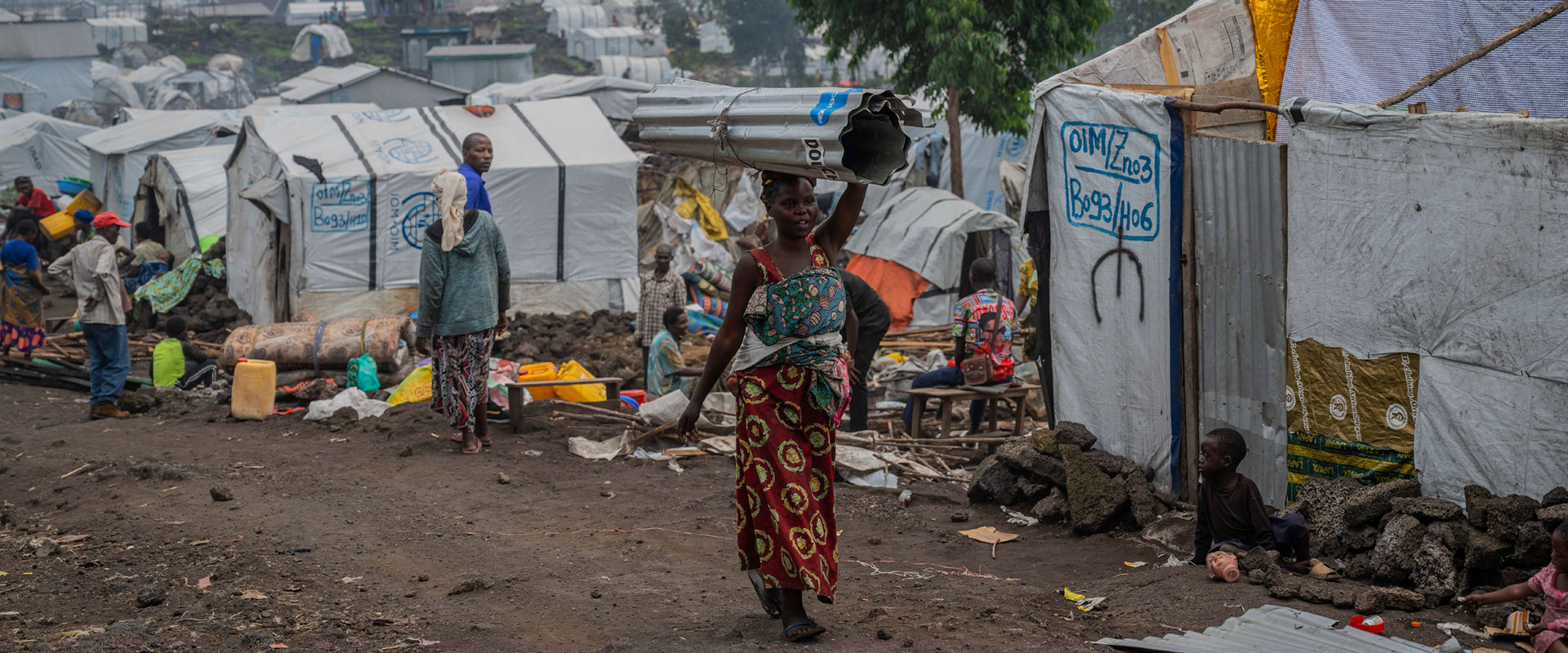In times of crisis, women and girls are disproportionally affected. Forced to flee their homes, communities and sometimes countries, they face an increased risk of unplanned pregnancy and unsafe abortion due to many factors, including general societal disruption and lawlessness, high incidence of sexual violence and transactional sex, disrupted access to contraception, and loss of family and social support networks.
Despite these challenges, Ipas works with local partners and humanitarian organizations to ensure that women and girls in crisis settings can access the sexual and reproductive health services they urgently need.
Here are six ways Ipas is ensuring access to sexual and reproductive health care in crisis settings around the world:
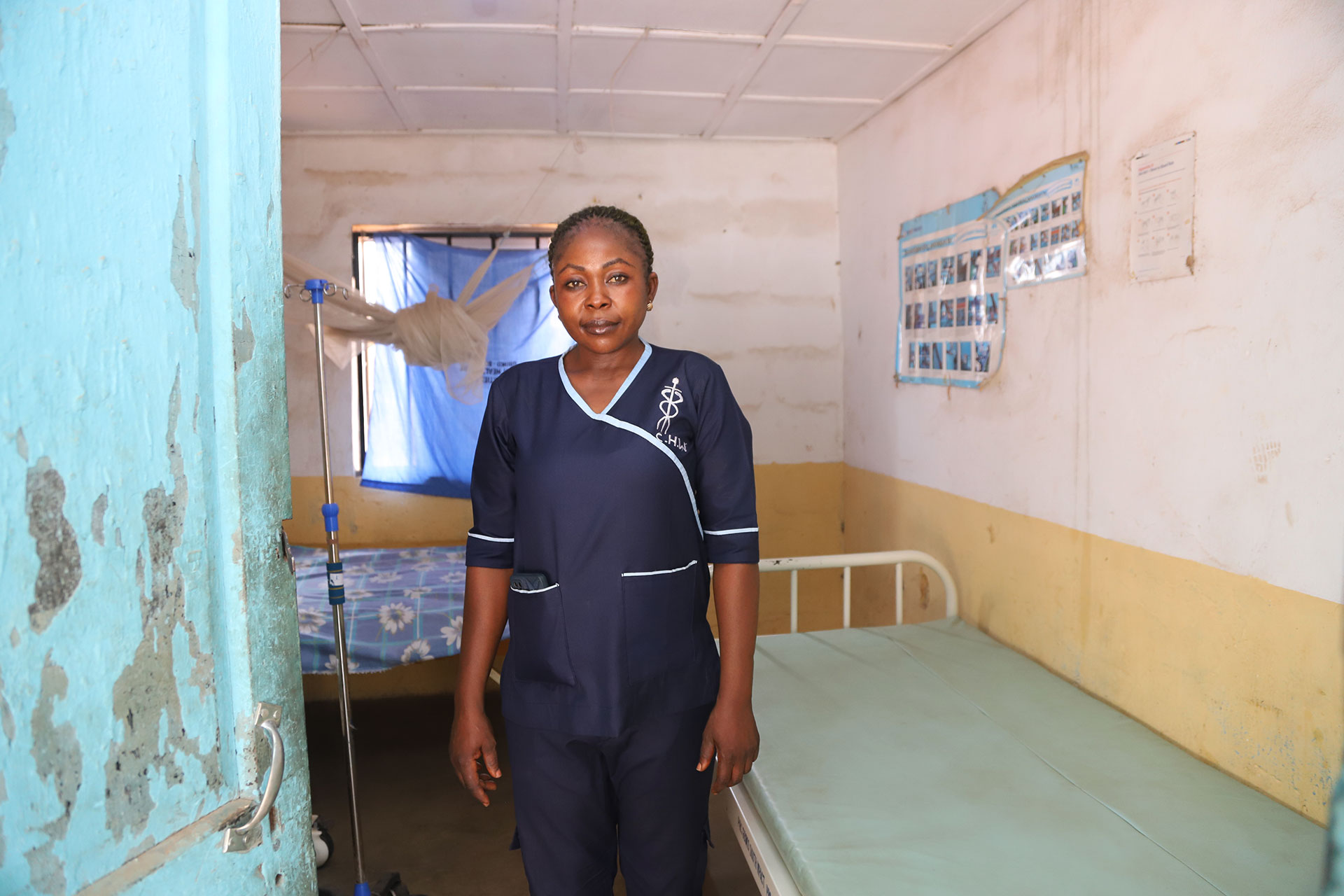
Photo © Ipas Nigeria
1. Training improves abortion and contraceptive care in humanitarian settings in Nigeria
Millions of people have been displaced within Nigeria since 2012 due to the Boko Haram insurgency, resulting in a crisis in which women and girls are at even higher risk for sexual violence and unwanted pregnancy—and have little to no access to reproductive health care.
The Ipas Nigeria Health Foundation provides training to humanitarian and health-care workers so they can offer responsive care to women and girls who have experienced sexual violence during this crisis.
“I learnt about sexual violence and forced marriage, as these are prevalent in the camps. I got to understand the different types of violence during the training—physical, sexual and emotional. We always had the report of rape cases in the camp but based on what I learnt from the training, I did some sensitization in the camp,” explains Deborah, a humanitarian worker in Benue State, north central Nigeria, trained by Ipas.
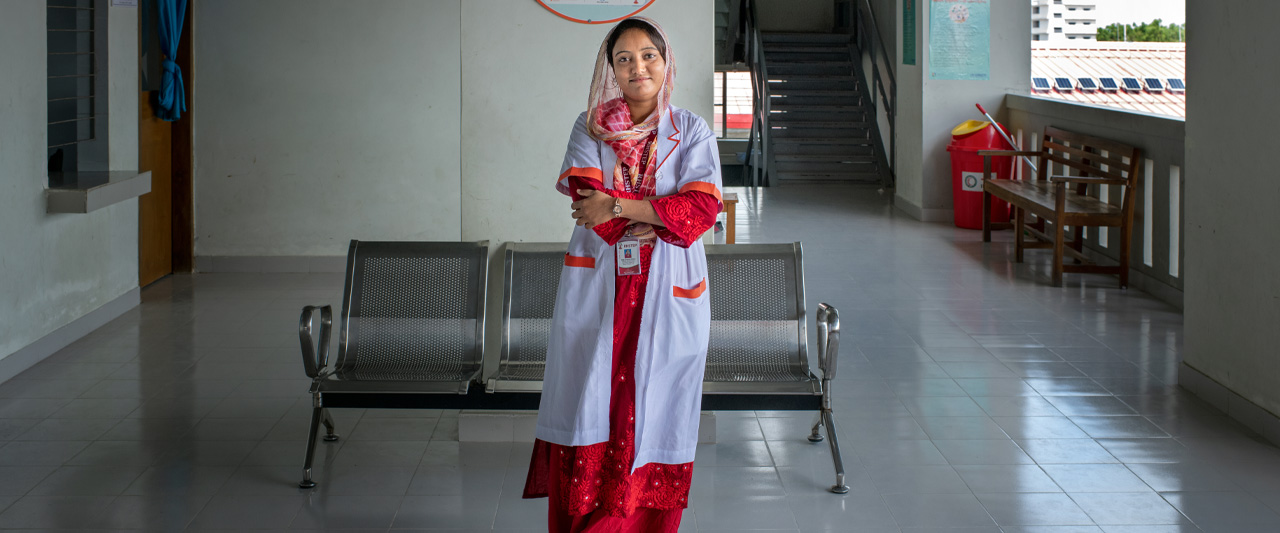
Photo by Fabeha Monir
2. Supporting comprehensive family planning, abortion and postabortion care in Rohingya refugee camps
In 2017, when hundreds of thousands of Rohingya refugees fled violent persecution in Myanmar, they arrived in camps in Bangladesh with acute sexual and reproductive health needs. Many had survived sexual violence. Ipas Bangladesh and partners moved quickly to train providers and support health facilities in the camps so they could offer needed contraception and abortion care.
Now, Ipas supports comprehensive family planning, abortion and postabortion care in these camps—by training providers, supporting health facilities, and coordinating with local and national organizations, camp officials and influential stakeholders (including religious leaders).
“Much has changed since we began this work, but Ipas’s commitment to ensuring reproductive health care for refugees in these camps has not wavered,” says Sayed Rubayet, director of Ipas Bangladesh. “Through flooding, landslides and a devastating pandemic, we have proven that family planning and abortion care in humanitarian settings is not only possible, but can be high-quality, survivor-centered care.”
Read more: Training health workers in Rohingya refugee camps
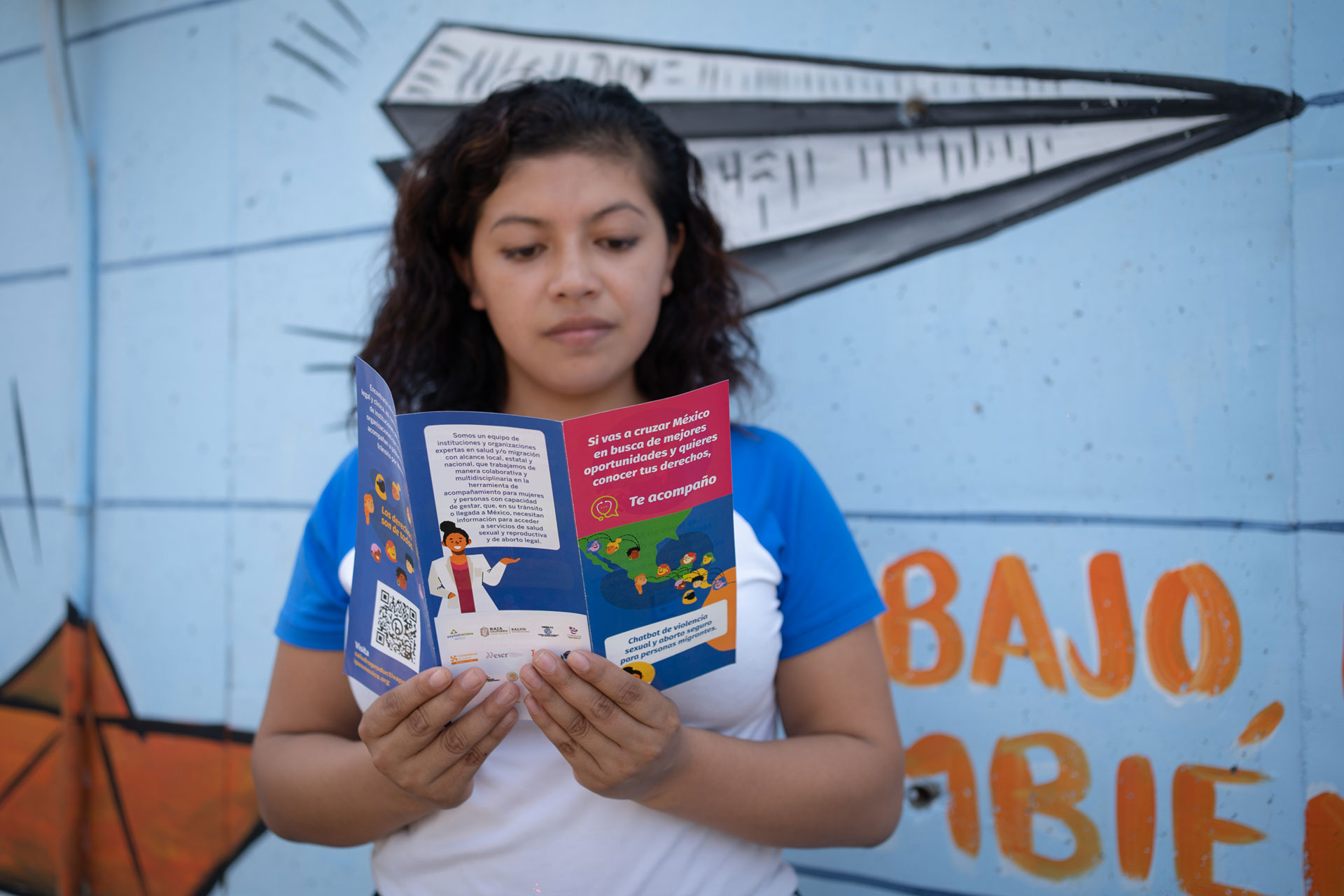
Photo by Victoria Razo
3. Helping migrant women in Mexico reclaim bodily autonomy using first-ever chatbot
Each year, an estimated 25 million people—half of them women—migrate across Latin America. Many arrive at Mexico’s southern border, including 45,000 women, mostly from Central America. These women not only flee violence but then face high rates of sexual and gender-based violence during their migration journey. Without local knowledge or connections, they struggle to find essential reproductive health care like contraception, emergency contraception, abortion, and treatment for sexually transmitted infections.
Ipas Latin America and the Caribbean partnered with federal, state, and local organizations and institutions to create “Te Acompaño,” the first Spanish-language chatbot designed especially for migrants. This innovative web-based platform aims to expand access to information, services and support for migrants seeking abortion and other sexual and reproductive health care along the main migration routes in Mexico.
Te Acompaño, which means “I accompany you” in Spanish, was developed with direct input from migrants themselves, as well as from a broad network of civil society organizations, government institutions and international entities that work with migrants.
“I feel very reassured and heard when I use Te Acompaño,” says Elizabeth Martínez, a migrant woman. “It reassures us that, as women, we’re free and fully entitled to choose what to do with our own bodies and to feel protected. The tools also are useful for having a safe abortion and making sure that our health is not at risk.”
Read more: A chatbot is helping Elizabeth Martínez and migrants like her reclaim bodily autonomy
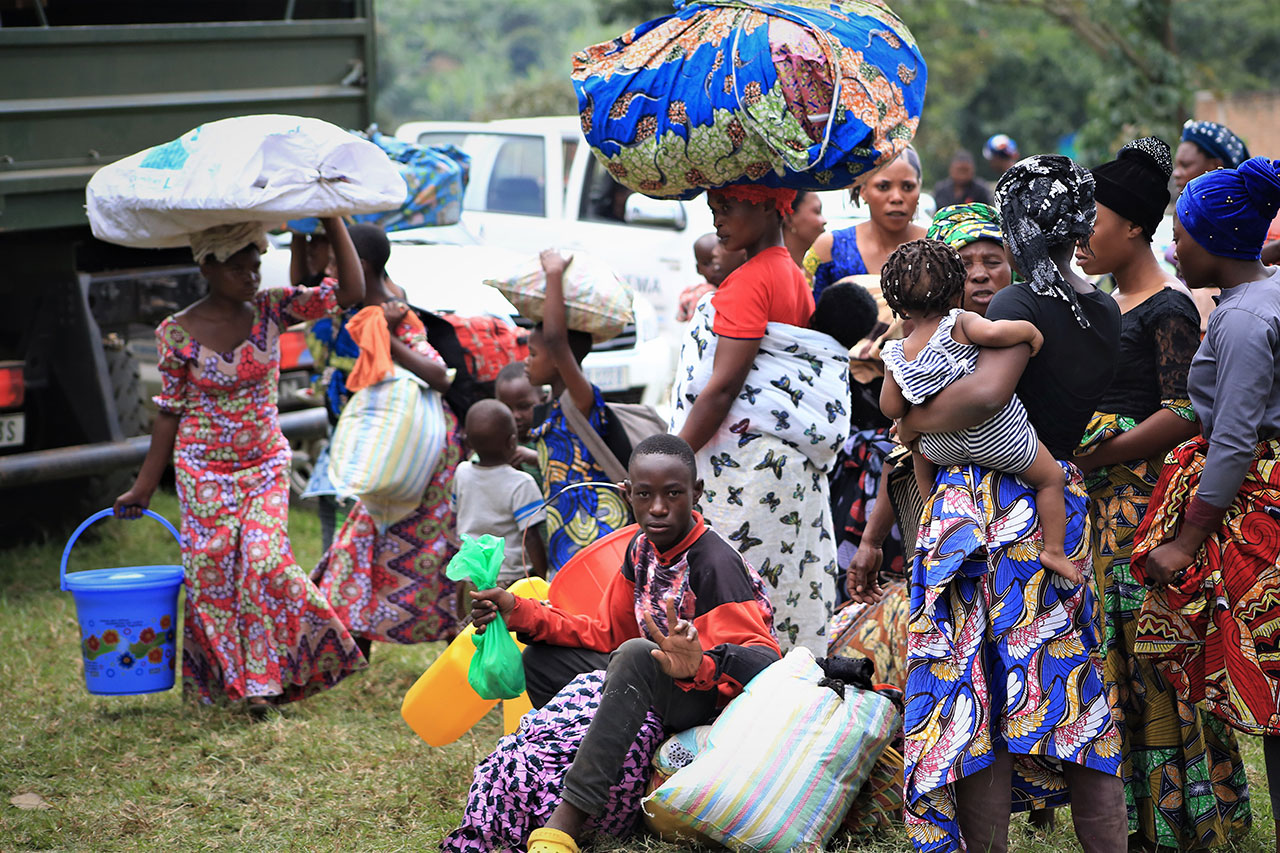
Photo by Ley Uwera
4. Making abortion information and services available for displaced people in the Democratic Republic of Congo
Decades of armed conflict, economic unrest and public health crises in the Democratic Republic of Congo (DRC) have displaced more than six million people within the country. And since 2022, a surge in armed conflict has accelerated the displacement of people fleeing terrible fighting.
Sexual violence against women and girls is rampant in this setting, driving many to seek abortion with unsafe methods. Access to sexual and reproductive health care—including abortion and contraception—is almost nonexistent in many of the camps where displaced people live. But Ipas DRC has teamed up with local partners to meet the overwhelming need by establishing mobile health clinics in some camps. And a youth-led network of Ipas-trained community outreach volunteers works to educate people on where to access care.
“There are many acts of sexual violence reported during humanitarian crises. In such settings, it’s a matter of reproductive and social justice to make abortion information and services available to all who need them,” says Dr. Jean-Claude Mulunda, director of Ipas DRC.
Read more: Ensuring care for internally displaced people in DRC
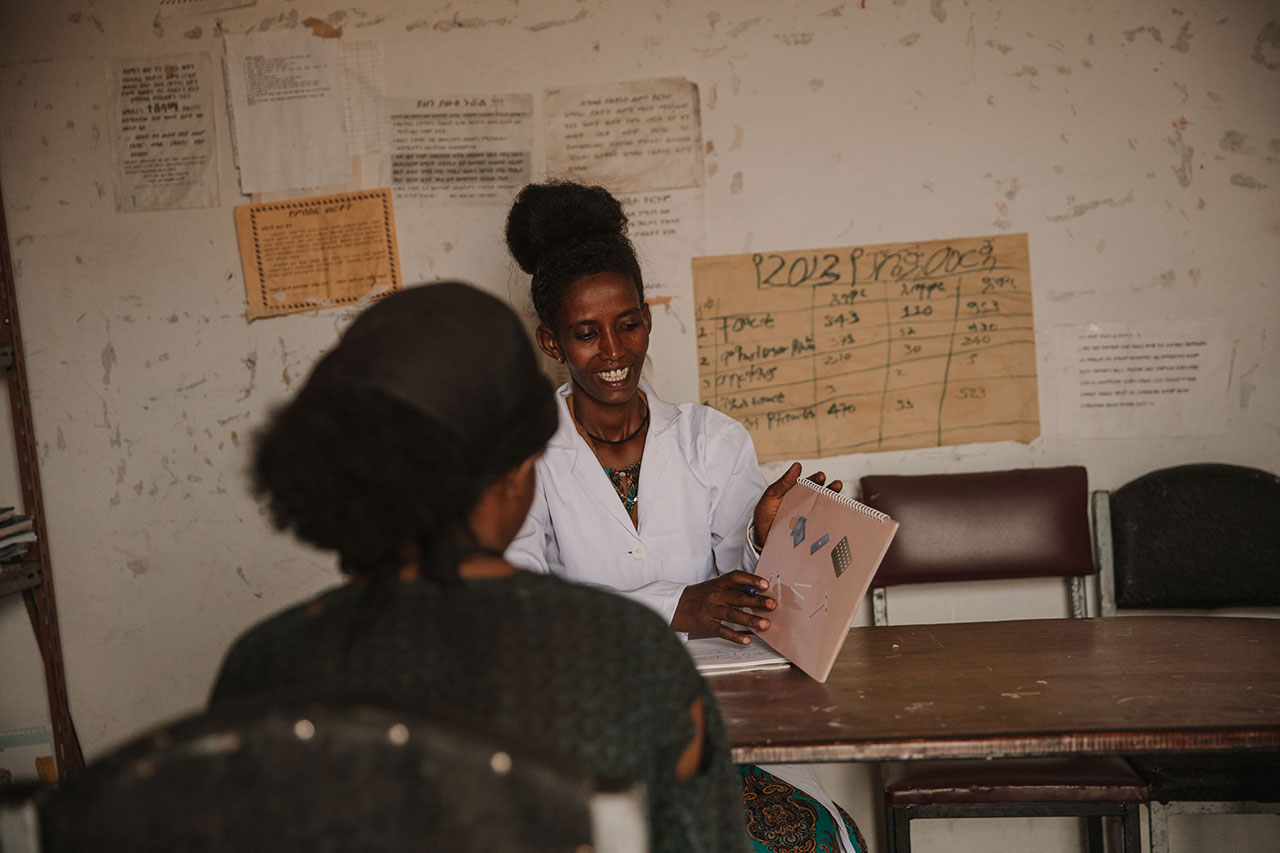
Photo by Martha Tadesse
5. Delivering essential reproductive health care to displaced women in Ethiopia
Against the backdrop of a brutal civil conflict, Ipas Ethiopia is dedicated to ensuring access to sexual and reproductive health services, including abortion. The team supports existing health facilities and helps re-establish services where they have been disrupted. Widespread sexual violence against women and girls displaced by the conflict has created a crucial need for care that is trauma-informed and centers the needs of survivors.
To address this urgent need, Ipas has partnered with local organizations to support three centers for displaced people in the Amhara region that provide refuge for thousands who fled nearby conflict. Ipas helps ensure these people can access vital sexual and reproductive health care by training local health providers in abortion care. The Ipas Ethiopia team also regularly donates medical and hygiene supplies to these centers, and collaborates with pharmacists and mobile health units to ensure women can access abortion pills without needing to visit a health facility. Community education is also important to combat stigma and ensure people know where to turn for care.
“We raised awareness among the community because mothers [who experienced sexual violence] have been stigmatized. They have been isolated and felt shame,” says Bizuye Habte, a health extension worker in the Amhara Region who received training from a local organization supported by Ipas.
Read more: Partnering with community groups and health workers during civil war in Ethiopia
6. Using our values clarification toolkit for humanitarian audiences
A major barrier to providing abortion care in humanitarian settings is abortion-related stigma, misinformation, and lack of knowledge about abortion among humanitarian and health staff. Ipas has developed a toolkit to explore these issues to help expand abortion access in crisis settings—a critical step for reducing maternal deaths and suffering in settings where humanitarian staff work.
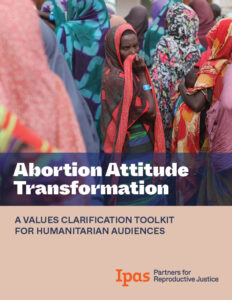 Ipas’s abortion VCAT (values clarification and attitude transformation) workshops use a variety of activities to engage participants in open dialogue to explore their values and attitudes about abortion and related sexual and reproductive health issues. The workshops often lead participants to increased awareness and comfort with providing abortion care.
Ipas’s abortion VCAT (values clarification and attitude transformation) workshops use a variety of activities to engage participants in open dialogue to explore their values and attitudes about abortion and related sexual and reproductive health issues. The workshops often lead participants to increased awareness and comfort with providing abortion care.
Learn more about our abortion VCAT toolkit for humanitarian audiences


